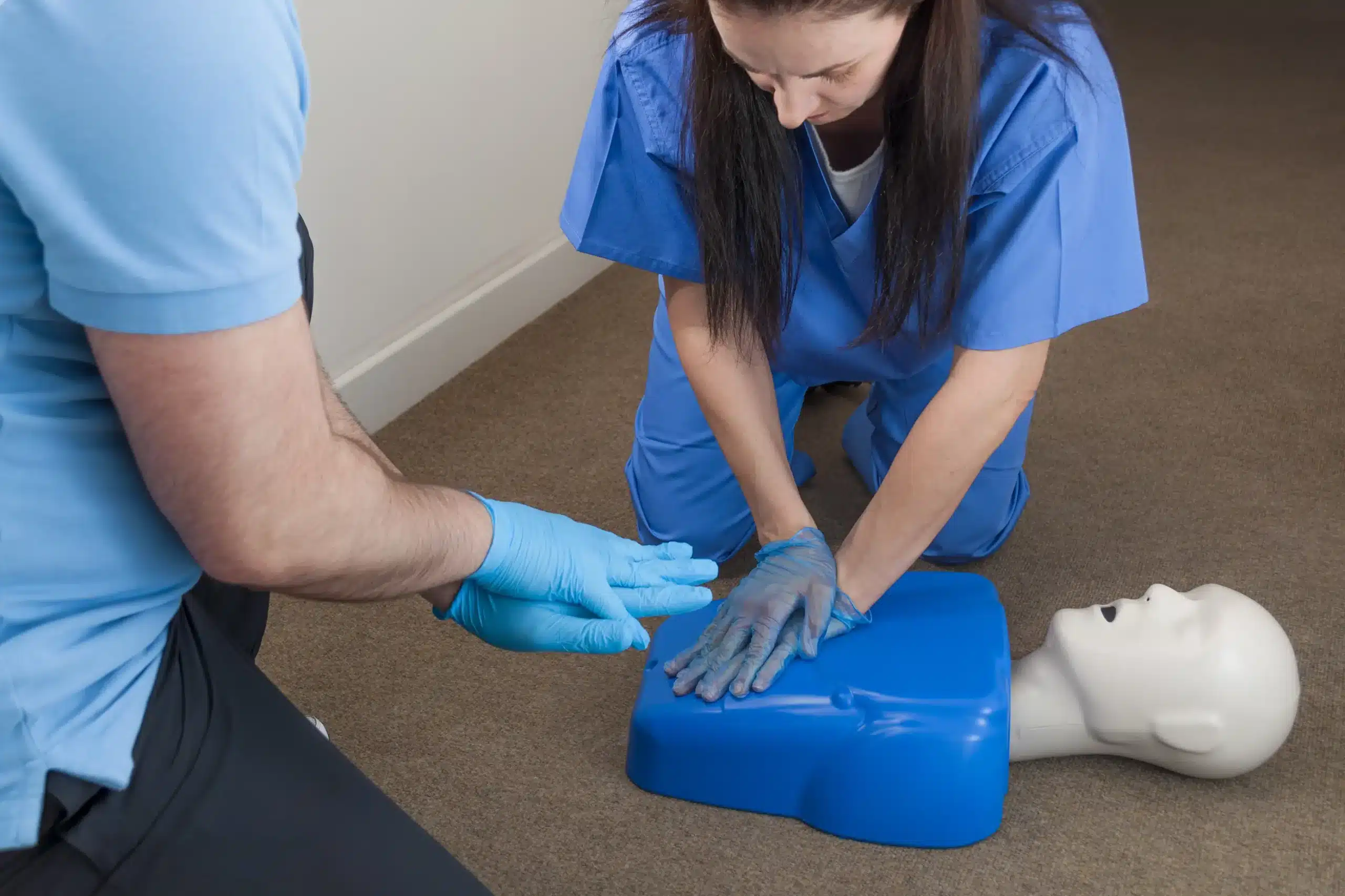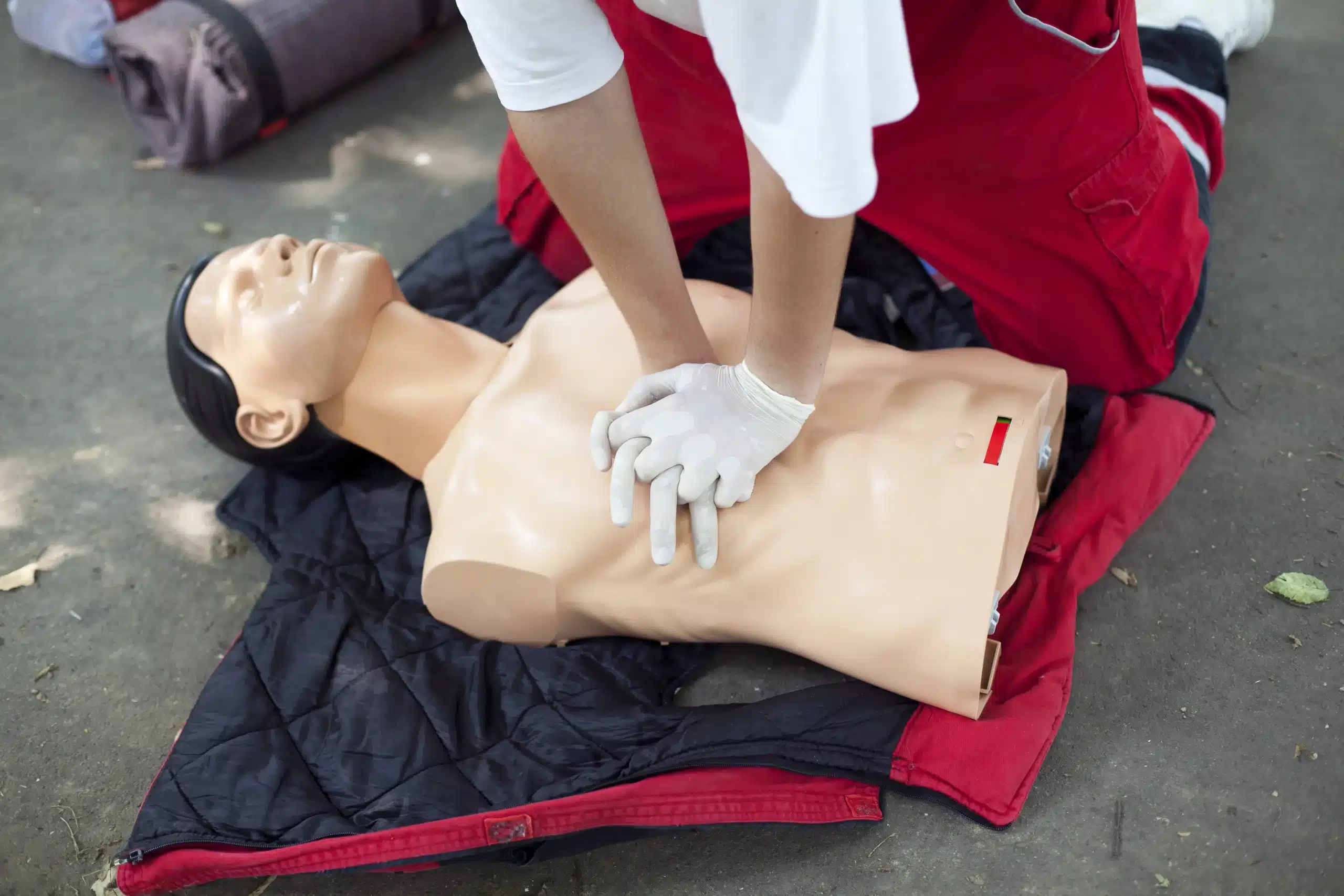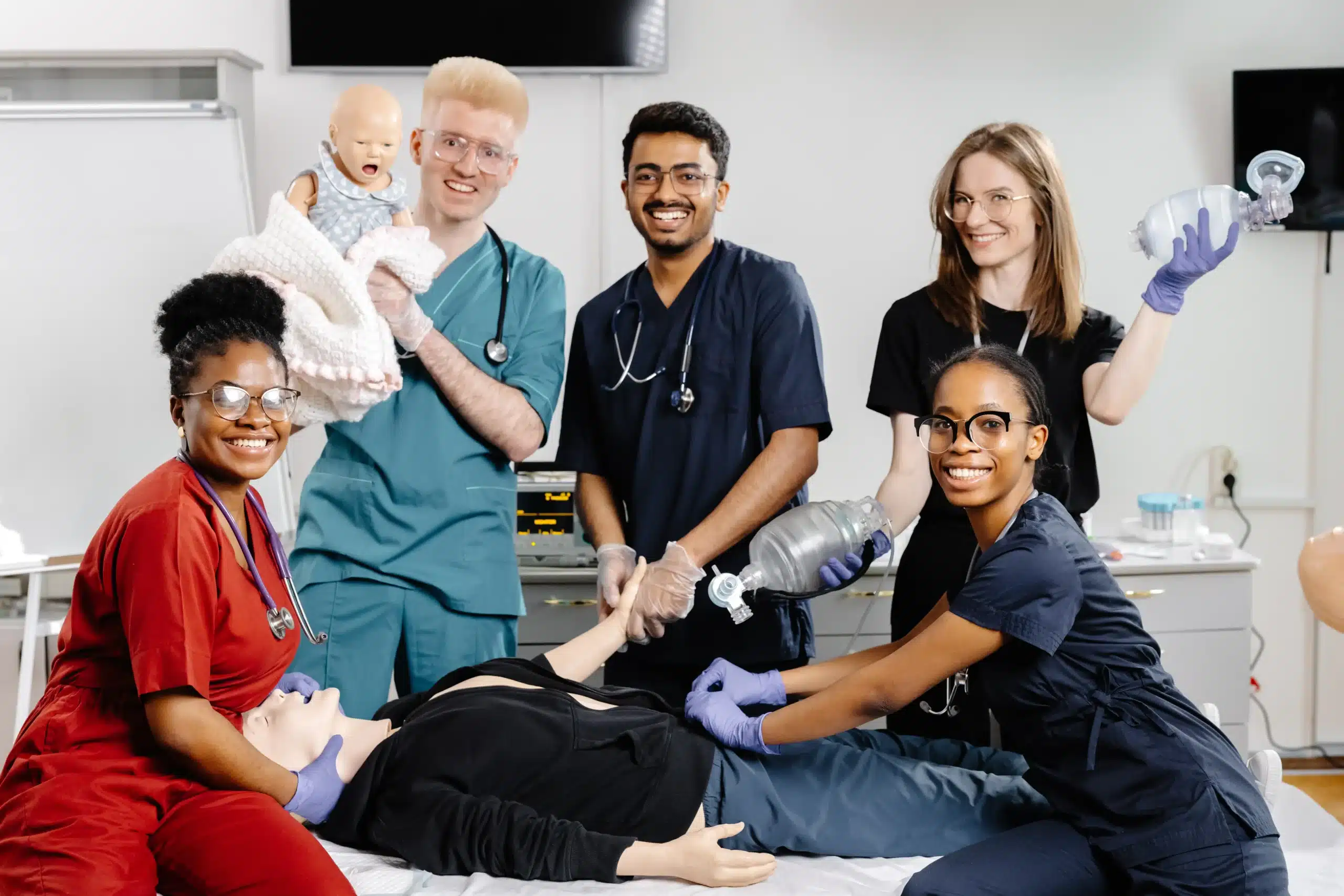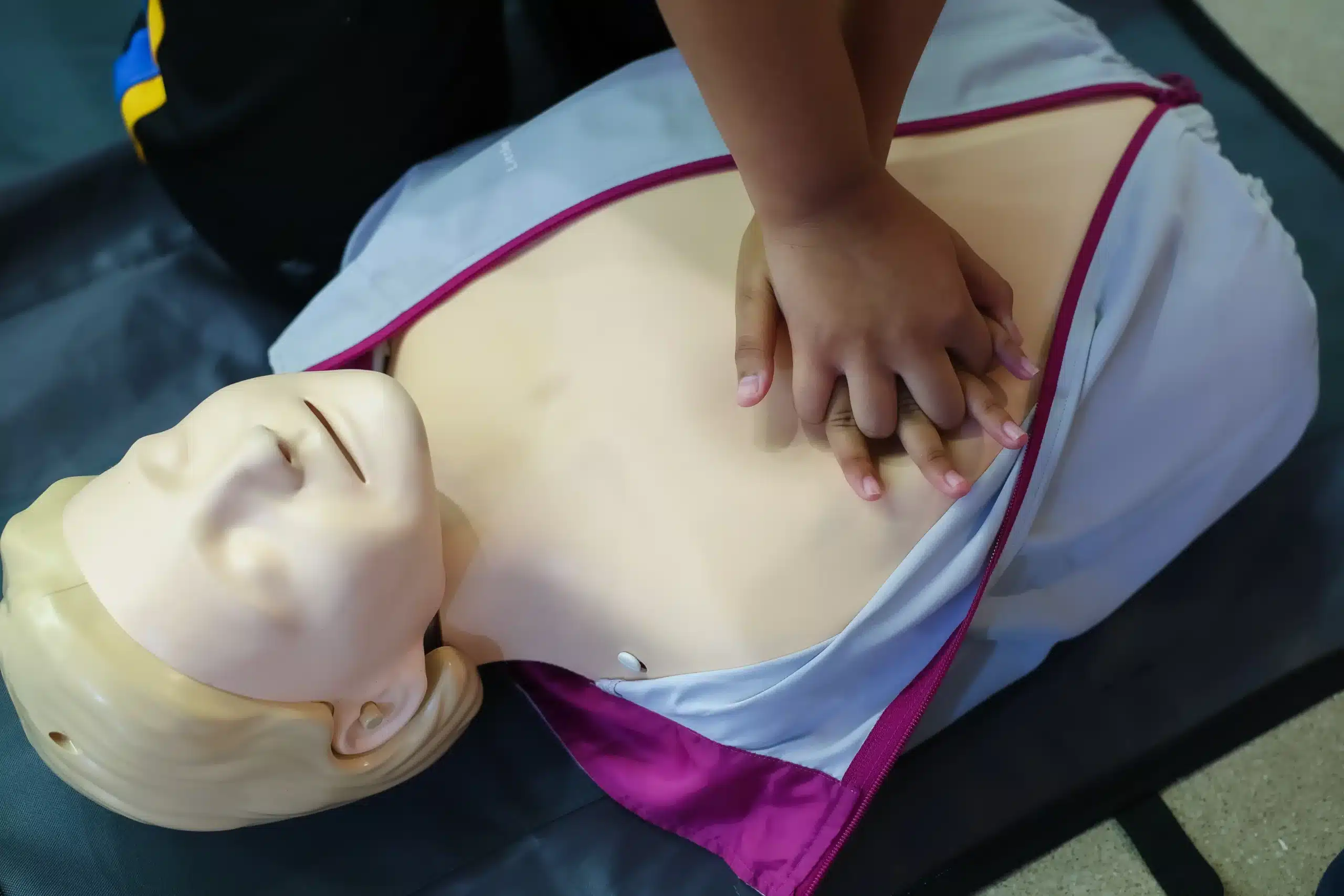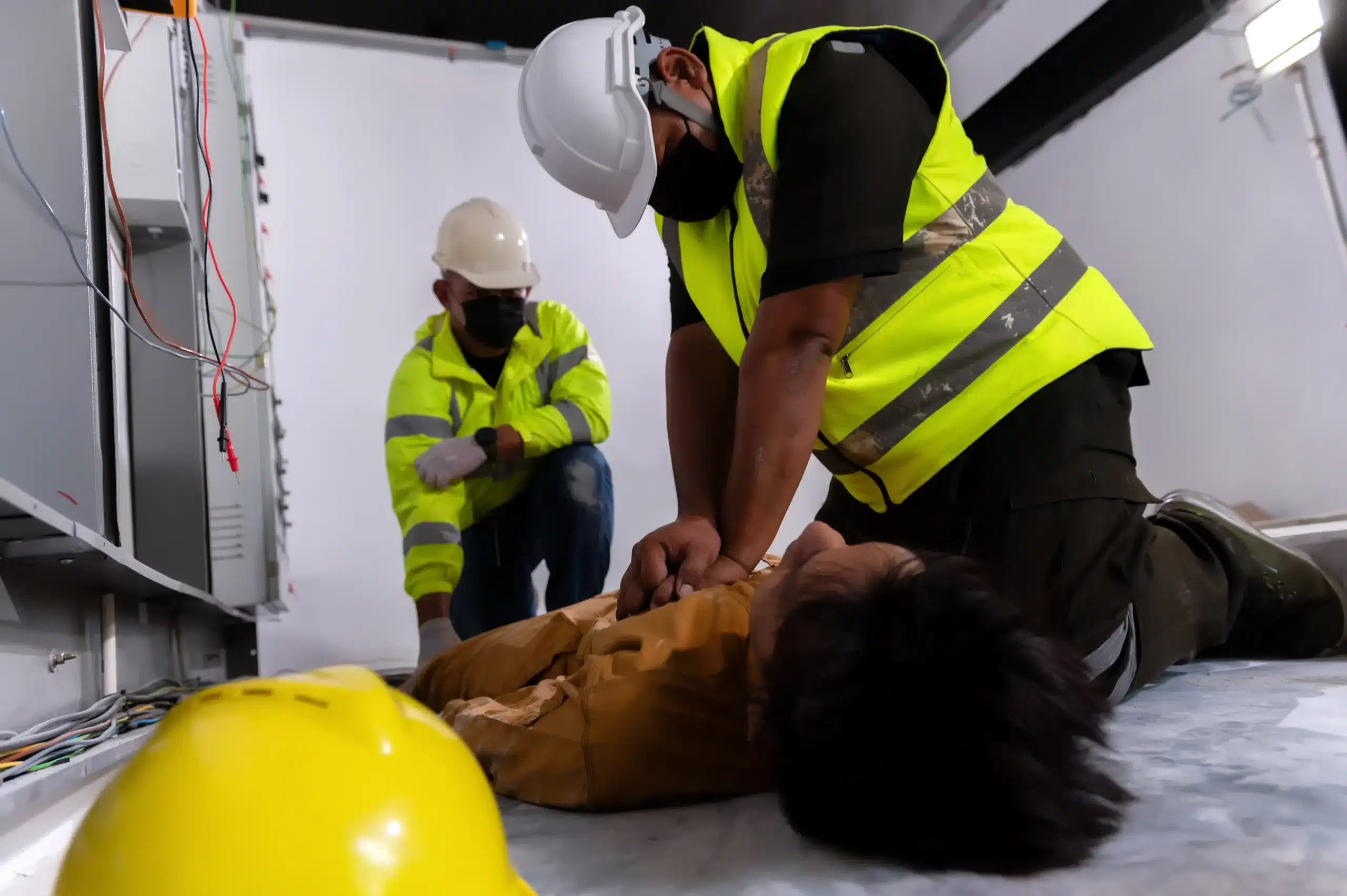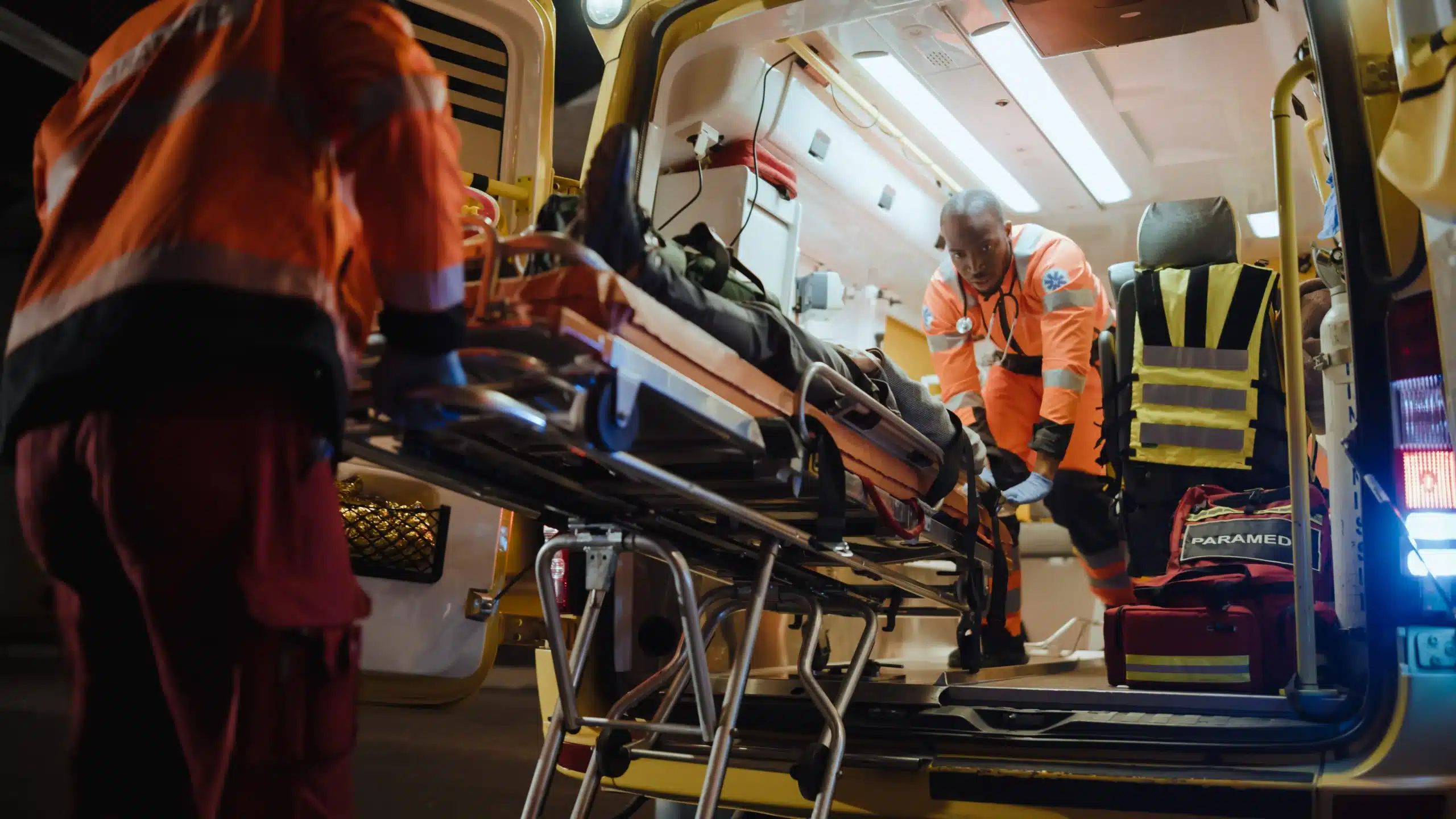In the face of a medical emergency, seconds can matter. Having basic life support (BLS) training can empower you to act quickly and potentially save a life. This guide is your go-to resource for understanding and accessing BLS training in Tulare. We’ll explore what BLS entails, who should consider getting certified, and the various training options available in the Tulare area. From healthcare professionals seeking to enhance their skills to community members wanting to be prepared for emergencies, this guide will help you find the right basic life support in Tulare and take the first step towards becoming a more confident and effective responder.
Key Takeaways
- BLS certification provides advanced life-saving skills: It goes beyond standard CPR, equipping healthcare providers and anyone interested with the skills to manage cardiac arrest, respiratory distress, and choking in various settings.
- Choosing the right BLS course requires research: Consider factors like cost, location, schedule, and the provider’s reputation. Contact training centers directly to discuss your needs and ask questions about their curriculum and certification process.
- Maintaining your BLS skills is an ongoing process: Certification typically lasts two years. Plan to take a renewal course to stay up-to-date with the latest guidelines and best practices in emergency cardiac care. Continuing education opportunities can further enhance your skills and knowledge.
What is Basic Life Support (BLS)?
Basic Life Support (BLS) is a critical certification for healthcare providers and first responders, such as doctors, nurses, EMTs, and other professionals who regularly face medical emergencies. It goes beyond basic CPR, equipping individuals with the skills to address life-threatening situations. BLS builds a strong foundation for recognizing and responding to respiratory and cardiac arrest. It emphasizes early intervention, from providing high-quality chest compressions and rescue breaths to using an AED. Learn more about our BLS courses in Visalia.
Key BLS Components
BLS training covers essential lifesaving skills. You’ll learn how to perform single-rescuer and team-based CPR for adults, children, and infants, as well as how to use an automated external defibrillator (AED) and relieve airway obstructions from choking. These skills are vital for responding effectively to cardiac arrest and other emergencies. BLS certification courses often include training on bag-mask techniques, proper ventilation, and other advanced airway management procedures. The goal is comprehensive preparation for various life-threatening scenarios.
Who Needs BLS Certification?
BLS certification is often a job requirement in healthcare. It’s essential for those working in hospitals, emergency medical services, and other settings requiring responses to medical crises. If you’re pursuing a career in nursing, medicine, or any allied health profession, BLS certification will likely be necessary. Even if not mandatory, these skills make you a valuable asset to any healthcare team. Beyond healthcare, BLS training benefits anyone who wants to be prepared for emergencies. From teachers and coaches to childcare providers and parents, these skills empower individuals to respond confidently and potentially save lives. Contact us to learn more about certification.
Find BLS Training in Tulare
Finding the right BLS training program is crucial for healthcare professionals and anyone who wants to be prepared for emergencies. Here are a few options for BLS certification in the Tulare area:
Safety Training Seminars
Safety Training Seminars in Visalia offers BLS certification courses through the American Heart Association. They focus on providing high-quality training at competitive prices, with a convenient location serving Visalia, Tulare, and Delano. Check their website for their low price guarantee and course schedule. They also offer other courses like RQI classes. Contact them to learn more.
College of the Sequoias
The College of the Sequoias offers BLS CPR classes leading to American Heart Association certification. This is a good option for those pursuing or currently in healthcare careers, as BLS certification is often a job requirement.
TulareCPR
TulareCPR provides BLS certification and recertification courses throughout Central California, including Tulare. They use the American Heart Association’s HeartCode eLearning blended learning format, combining online coursework with in-person skills practice.
American Red Cross
The American Red Cross offers BLS certification classes designed for healthcare providers and first responders. Their courses equip participants with the skills to respond to cardiovascular emergencies and other life-threatening situations.
Get BLS Certified
Getting your BLS certification is straightforward. This section walks you through the process, from finding a course to understanding the requirements.
Steps to Certification
First, find a training center or organization that offers BLS certification courses in your area. Reputable providers include the American Red Cross, the American Heart Association, and various community colleges and hospitals. Safety Training Seminars offers a variety of BLS courses in Visalia. Once you’ve chosen a provider, register for a class that fits your schedule. Many offer various schedules and formats to accommodate different needs.
Course Length and Format
BLS certification courses typically take about 4-5 hours to complete if you choose an instructor-led format. Blended learning courses, which combine online learning with in-person skills sessions, may offer a shorter classroom component. Regardless of the format, expect your certification to be valid for two years. Safety Training Seminars certifications are valid for two years.
Online vs. In-Person
You’ll find BLS courses offered in both in-person and blended learning formats. Traditional in-person classes provide a classroom-style setting with hands-on practice. Blended learning courses allow you to complete some of the coursework online at your own pace, followed by an in-person session to practice and demonstrate your skills. Consider your learning style and schedule when choosing the best format for you. For example, RQI classes offer a blended learning approach.
Skills Evaluation and Testing
To receive your BLS certification, you’ll need to successfully complete all course components. This includes demonstrating your skills in person. You’ll be evaluated on your ability to perform CPR, use an AED, and provide other life-saving techniques. Instructors provide guidance and support throughout the process to help you prepare. If you don’t pass on your first attempt, most providers will allow you to retake the skills evaluation. Contact us if you have any questions.
BLS Certification: Cost & Value
Getting BLS certified is an investment in your skills and career. But how much does it cost, and what makes it so valuable? Let’s break it down.
Course Pricing
BLS courses in Tulare County are generally priced around $80. This is a competitive rate, especially considering the potential return on investment this certification offers. Safety Training Seminars offers the lowest prices in Tulare County, so you can get top-notch training without breaking the bank.
Discounts and Promotions
Looking to train a group? Many providers, including Safety Training Seminars, offer discounts for group bookings. This can be a great way to make BLS training more affordable for your team, company, or organization. Contact us to learn more about current promotions and group discounts.
Safety Training Seminars’ Low Price Guarantee
We’re committed to providing high-quality BLS training at the most competitive prices. Our Low Price Guarantee ensures that you’re getting the best possible value. If you find a lower advertised price for an equivalent BLS course in Tulare County, we’ll match it.
Invest in Your Career and Safety
BLS certification is a smart investment for several reasons. It’s a required certification for many healthcare jobs and a valuable asset for anyone wanting to advance their career. Even if it’s not mandatory for your current role, having BLS training can open doors to new opportunities. Plus, these skills empower you to respond effectively during emergencies, potentially saving lives. Explore our BLS course options to get started.
BLS vs. Other CPR Certifications
Knowing the difference between Basic Life Support (BLS) and other CPR certifications, like standard CPR, can help you choose the right course. While both teach life-saving skills, they cater to different needs and professional levels.
Content and Focus Differences
BLS certification is designed for healthcare providers, such as doctors, nurses, and paramedics. It includes advanced techniques for managing cardiac arrest, respiratory distress, and airway obstructions, covering team dynamics, AED use, and other skills necessary for medical professionals. Standard CPR courses, like those offered by the American Red Cross, focus on essential life-saving skills for the general public, teaching CPR on adults, children, and infants.
Who Should Take Each Course?
The best choice depends on your situation. If you’re a parent, teacher, or childcare provider wanting to learn basic life-saving skills, a standard CPR course is a great option. If you’re a healthcare professional or plan to be one, BLS certification is often a job requirement and provides comprehensive training. Check with your employer or potential employer to confirm their specific requirements. For those in the healthcare field, BLS courses in Visalia are readily available.
Choose the Right Course
Choosing the right course depends on your individual needs. Standard CPR training equips anyone with the skills to respond to emergencies. BLS training gives healthcare professionals the advanced knowledge and techniques required in their field. Safety Training Seminars offers both BLS and CPR courses in Visalia. Contact us to learn more about our course offerings and start your certification journey.
Benefits of BLS Training
BLS training offers a range of benefits, from career advancement to personal growth. Whether you’re a healthcare professional, a childcare provider, or simply someone who wants to be prepared, BLS certification equips you with valuable skills.
Advance Your Career
For many healthcare roles, BLS certification isn’t just recommended—it’s required. From hospitals to outpatient clinics, employers seek candidates with this vital credential. Earning your BLS certification demonstrates your commitment to patient safety and can open doors to more advanced positions and greater earning potential. Check with local colleges like the College of the Sequoias to see how BLS certification can benefit your career.
Prepare for Emergencies
BLS training provides you with the skills to confidently respond to medical emergencies. You’ll learn how to perform CPR, provide ventilation, and manage choking in adults, children, and infants. These skills can make a critical difference in the moments before professional help arrives. The American Red Cross explains how BLS goes beyond basic CPR to include techniques for handling cardiac arrest, respiratory distress, and airway obstructions. This comprehensive training prepares you for a wider range of critical situations.
Meet Job Requirements
Many healthcare providers, including doctors, nurses, and paramedics, must maintain current BLS certification. This requirement ensures that healthcare professionals possess the essential skills to respond effectively in critical situations. Even in non-medical fields like education, childcare, and fitness, BLS certification is often preferred or required, demonstrating a commitment to safety. Red Cross BLS classes are designed to meet these job requirements.
Improve Community Safety
BLS-trained individuals contribute to a safer community. Bystanders who know BLS can provide immediate assistance during emergencies, potentially saving lives. This is particularly important in areas where access to advanced medical care might be limited. Local providers, like TulareCPR, often offer specialized training relevant to the community’s specific needs, such as courses tailored to agricultural emergencies. Having more BLS-trained individuals within a community creates a network of prepared responders.
Renew Your BLS Certification
Keeping your BLS skills sharp is essential for providing effective care in emergencies. Renewing your certification is a straightforward process.
Renewal Process
BLS certification is typically valid for two years. If your certification is about to expire, or has already expired, you’ll need to take a BLS renewal or recertification course. These courses cover the same core content as the initial BLS training, but are often designed as refreshers, focusing on key skills and updates to guidelines. You can find BLS renewal courses offered by various providers, including Safety Training Seminars in Visalia. Check with your certifying organization, such as the American Heart Association or American Red Cross, for specific renewal requirements. This renewal process ensures your skills and knowledge are current, allowing you to continue providing high-quality care.
Continuing Education
Even if your certification isn’t due for renewal yet, participating in continuing education related to BLS can be incredibly valuable. This might include workshops, online modules, or subscribing to journals and publications that cover advancements in emergency cardiac care. Staying informed about the latest techniques and best practices will enhance your skills and demonstrate your commitment to providing excellent care. The American Red Cross offers various continuing education opportunities for BLS providers. By actively engaging in continuing education, you’ll be better prepared to handle any emergency and provide confident, effective care.
Choose a BLS Provider in Tulare
Finding the right BLS provider is an important step. Take the time to research and compare options to ensure the course meets your needs and prepares you for a real-life emergency.
Factors to Consider
Think about what matters most to you. Is it a convenient location, affordable pricing, or a specific schedule? Do you prefer hands-on, in-person training or the flexibility of online learning? Consider factors like class size, instructor experience, and the overall reputation of the training center. A smaller class size can offer more personalized instruction and feedback. For those balancing work and family, weekend or evening classes might be essential.
Questions to Ask
Don’t hesitate to contact providers directly and ask questions. A reputable provider will be happy to address your concerns. Ask about the curriculum and the type of certification offered. What’s included in the course fee? Inquire about the instructors’ backgrounds and experience levels. It’s also smart to ask about their refund policy in case your plans change. Understanding the total cost upfront will help you budget accordingly.
Compare Local Providers
Here’s a comparison of BLS providers in the Tulare area:
Safety Training Seminars
Safety Training Seminars in nearby Visalia offers American Heart Association BLS courses, known for their comprehensive and high-quality content. They also provide a low-price guarantee, ensuring you get the best value for your training. Serving Visalia, Tulare, and Delano, their central location makes them accessible to a wider audience. Check their website for course schedules and availability. They also offer other courses like RQI classes for healthcare professionals. For any questions, feel free to contact them.
College of the Sequoias
College of the Sequoias offers BLS training resulting in American Heart Association certification. This is a great option if you prefer a more traditional academic setting. Keep in mind that college courses sometimes have different registration processes and may have prerequisites.
TulareCPR
TulareCPR offers various CPR certifications, including BLS. Review their website or contact them directly to confirm course specifics and schedules. Compare their offerings with other providers to see what best suits your needs.
American Red Cross
The American Red Cross is a well-known provider of BLS certification courses. They offer training tailored to healthcare providers and first responders. Check their website for class availability in your area and to learn more about their course format and fees.
Prepare for Your BLS Course
So, you’re ready to take a BLS course? Great! Knowing what to expect can make your learning experience smoother and more effective. This section covers key information to help you prepare.
What to Expect
BLS courses in Tulare County, like those offered by Safety Training Seminars, blend theory and hands-on practice. Expect to learn the latest American Heart Association (AHA) guidelines for CPR, how to use an AED, and how to relieve choking. These courses are designed for healthcare providers, so the curriculum focuses on skills directly applicable to medical emergencies. You’ll work with instructors, practice on mannequins, and participate in scenarios to build your confidence and competence. Similar training, emphasizing the importance of this certification in healthcare, is also available at the College of the Sequoias.
Certification Tips
You’ll receive your BLS certification card the same day you successfully complete the course, which is super convenient for meeting job requirements. Remember that BLS certification is typically valid for two years. Keep track of your expiration date! The American Red Cross offers recertification courses, a great way to refresh your skills and stay current without retaking the entire course. Planning ahead will ensure your skills and qualifications stay up-to-date.
Related Articles
- BLS Certification in Walnut Creek: Your Guide – Visalia CPR Classes
- BLS Certification in Concord: The Complete Guide – Visalia CPR Classes
- BLS Certification in Tulare County: Your Complete Guide – Visalia CPR Classes
- BLS Certification in Pleasant Hill: Your Guide – Visalia CPR Classes
Frequently Asked Questions
How long is BLS certification valid? BLS certification is typically valid for two years. You’ll need to take a recertification course to renew your skills and maintain your credentials.
What’s the difference between BLS and CPR certification? BLS (Basic Life Support) certification is more advanced than standard CPR and is designed for healthcare professionals. It covers a broader range of skills, including team-based resuscitation and the use of an AED. Standard CPR training focuses on essential life-saving techniques for the general public.
How much does a BLS course cost in Tulare County? BLS courses in Tulare County typically cost around $80, but prices can vary. Safety Training Seminars offers a low-price guarantee, so it’s worth checking their website for the latest pricing and any available discounts.
What if I fail the BLS skills evaluation? Don’t worry if you don’t pass the skills evaluation on your first try. Most providers allow you to retake the evaluation. Talk to your instructor; they’ll provide guidance and support to help you succeed.
Where can I find BLS courses near me? Several organizations offer BLS courses in the Tulare area, including Safety Training Seminars in Visalia, the College of the Sequoias, and the American Red Cross. Check their websites or give them a call to find a course that fits your schedule and location preferences.
